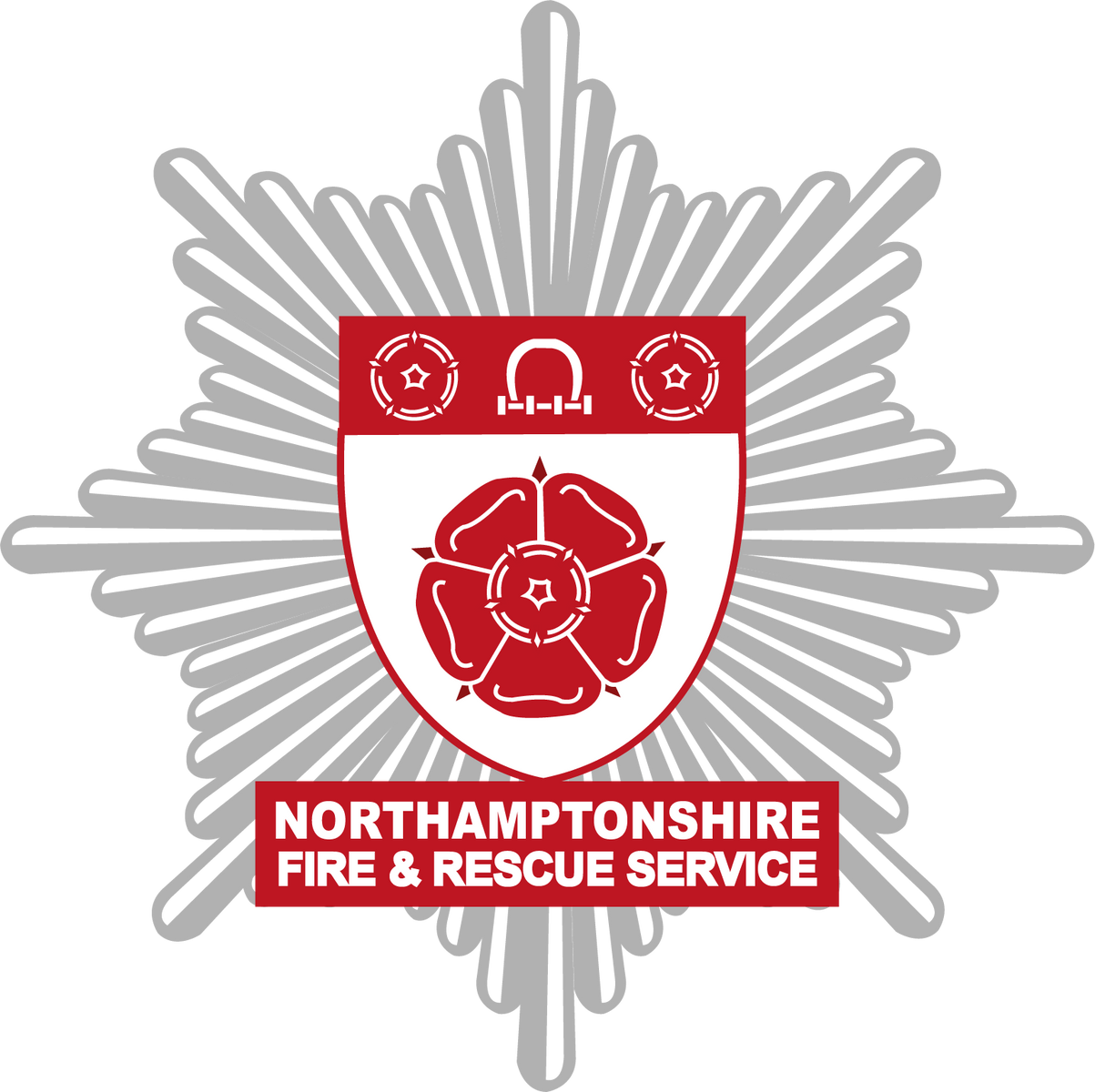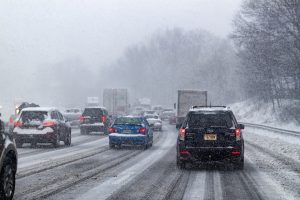Road Safety
In April 2021, Northamptonshire Fire and Rescue Service (NFRS) have attended 34 Road Traffic Collisions (RTCs). The previous year in April 2020, we attended 14 RTCs which shows that we are responding to an increased number of vehicle related incidents. This means we see at first hand the impact that these incidents can have on human lives.
For more information on road safety, visit the Northamptonshire Highways website.
You can also find cycle safety advice on the Cycle Northants website.

The numbers of people choosing to cycle for fun, fitness or to get to work has increased by more than a quarter in twenty years and an incredible 3.2 billion miles are cycled on our roads every year.
- Drivers should always keep on the alert for cyclists, particularly at junctions and when getting out of cars.
- Motorists should always leave plenty of room for cyclists at traffic lights.
- Cyclists should ensure they ride a door’s width from parked cars and should ride centrally in narrow lanes.
- Drivers should make sure they indicate ahead of manoeuvring.
- Advanced stop lines allow cyclists to remain visible by taking position at the front of the traffic. Drivers must stop at the first white line reached, if the lights are amber or red. Allow cyclists time and space to move off when the green light shows.
- Cyclists should ride decisively and well clear of the kerb. They should be clear in looking and signalling to show drivers what they plan to do, making eye contact where possible so they know drivers have seen them.
- Cyclists should avoid riding up the inside of large vehicles such as lorries or buses, where they may not be seen.
- Lights should be used after dark or in poor visibility.
- When cycling, it is sensible to wear clothing that is light coloured and reflective as this increases the chance you will be noticed.
- Cycling helmets are recommended. This should be fastened securely and should conform to regulations.
Bikeability
Cycling is an effective sustainable mode of travel to school, however, all pupils cycling must be made aware of the need for safety and security when cycling. The National Standard Cycle Training is a progressive scheme that moves through three levels to give parents the reassurance that their children have the necessary skills and confidence to cycle to school. Children are encouraged to achieve all three levels of training. Bikeability is organised by our Highways Team in Northamptonshire. If you would like further information regarding Bikeability training please contact them on cycletraining@kierwsp.co.uk or visit their website.
Please visit the Think website for further information and safety tips on cycling.
Weather patterns in the UK usually mean that extreme conditions such as ice, snow and heavy rain can happen suddenly and can often leave drivers unprepared for what they might face on the roads.
Many drivers may fail to realise the extent to which extreme weather can affect aspects of driving such as visibility and stopping distances. Stopping distances can double in wet conditions and can increase ten-fold in ice and snow. Add to this the fact that reactions to hazards become impaired when drivers cannot see clearly, and the results can be fatal.
If possible, avoid driving in snow and other dangerous conditions such as fog, heavy rain and ice. Think about if there are any alternatives such as home-working arrangements; particularly if you live in a rural area.
Change the way you drive depending on the weather
- Make sure you slow down if the road is wet, snowy or icy or if weather conditions are causing you any problems in seeing. Take corners slowly and drive more slowly if your view of the road is obscured in any way. Remember that fog can be patchy, so do not suddenly speed up when you reach a clear patch.
- Do not drive too close to the vehicle in front as stopping distances are much greater in wet, icy or snowy conditions. You need enough time to stop safely.
- In adverse weather, avoid harsh braking and acceleration. Take great care with any manoeuvres attempted.
- Make sure you use lights whenever visibility is reduced. In dense fog, don’t forget to use front and rear fog lights, but switch them off if visibility becomes clear.
- In snow and ice, use the highest gear possible to avoid wheel spin, but don’t let your speed become too high.
- Always brake gently to avoid the wheel locking. When coming to a stop, get into a low gear earlier and let your vehicle slow down gradually.
- If your vehicle skids, do not brake. Instead, ease off the accelerator and steer slightly into the direction of the skid until you feel like you have control again.
- Do not attempt to cross flooded roads if you are not sure how deep the water is. Some vehicles only need about two feet of water to float.
- If winds are strong, take extra care on open stretches of road and when crossing bridges. Keep your distance from motorcycles and high-sided vehicles as these can be more affected by this type of weather.
- For sunny weather, make sure you keep sunglasses in the car and wear them to protect your eyes from the glare of bright sunshine.
The Green Cross Code may have been launched in the 1970s, but it still holds some key messages for pedestrians when it comes to road safety.
- First find the safest place to cross
- If possible, cross the road at: subways, footbridges, islands, zebra, puffin, pelican or toucan crossings, or where there is a crossing point controlled by a police officer, a school crossing patrol or a traffic warden.
- Otherwise, choose a place where you can see clearly in all directions, and where drivers can see you.
- Try to avoid crossing between parked cars and on sharp bends or close to the top of a hill. Move to a space where drivers and riders can see you clearly.
- There should be space to reach the pavement on the other side.
- Stop just before you get to the kerb
- Do not get too close to the traffic. If there is no pavement, keep back from the edge of the road but make sure you can still see approaching traffic.
- Give yourself lots of time to have a good look around.
- Look all around for traffic and listen
- Look all around for traffic and listen.
- Look in every direction.
- Listen carefully because you can sometimes hear traffic before you can see it.
- If traffic is coming, let it pass
- Look all around again and listen.
- Do not cross until there is a safe gap in the traffic and you are certain that there is plenty of time.
- Remember, even if traffic is a long way off, it may be approaching very quickly.
- When it is safe, go straight across the road – do not run
- Keep looking and listening for traffic while you cross, in case there is any traffic you did not see, or in case other traffic appears suddenly.
- Look out for cyclists and motorcyclists traveling between lanes of traffic.
- Do not cross diagonally.
For more road safety advice, visit the Think Direct website.
Drink driving, speeding, not wearing a seatbelt and using a mobile phone while at the wheel are the four primary causes of fatal and serious injury collisions in the UK.
In Northamptonshire, the Fire Service assists the Safer Roads Team and Highways Team to carryout ongoing campaigns to tackle each of these four hazards. Here are some points to remember:
Drink driving:
- Don’t drink and drive. The only safe limit is none
- You can still be over the limit the morning after
- A drink driving conviction will stay on your licence for 11 years
Speeding:
Speeders can be fined up to 150 per cent of their weekly income, rather than the current 100 per cent.
- Keep to the speed limit; it could mean the difference between life and death
- Drive appropriately for the conditions; slow down when there is bad weather
- Don’t assume it is safe to break the speed limit on rural roads because there is less traffic. There can be more hazards
Seatbelts:
- Always wear a seatbelt, and make sure any passengers you are carrying are wearing a seatbelt
- Make sure children are in the appropriate car/booster seat and strapped in correctly
- Spending just one minute checking everyone is strapped in correctly could mean the difference between life and death
Mobile phone use:
If you’re caught using a handheld phone while driving, you will get six penalty points on your licence and a fine of £200. The increase in penalty points would mean an immediate ban for newly-qualified drivers who have a ceiling of six points for the first two years after passing the test.
- Don’t use your mobile phone while driving – switch it off before you set off
- Never call anyone if you know they are driving, and hang up if you call someone who answers and you realise they are driving
- No conversation, text message or online post is more important than someone’s life
Every driver has the responsibility of driving safely and to the rules of the road.
For more road safety advice, visit the Think Direct website.







 Fire Risk Assessment (worked example for House in Multiple Occupation (HMO)) (PDF 389KB)
Fire Risk Assessment (worked example for House in Multiple Occupation (HMO)) (PDF 389KB)
